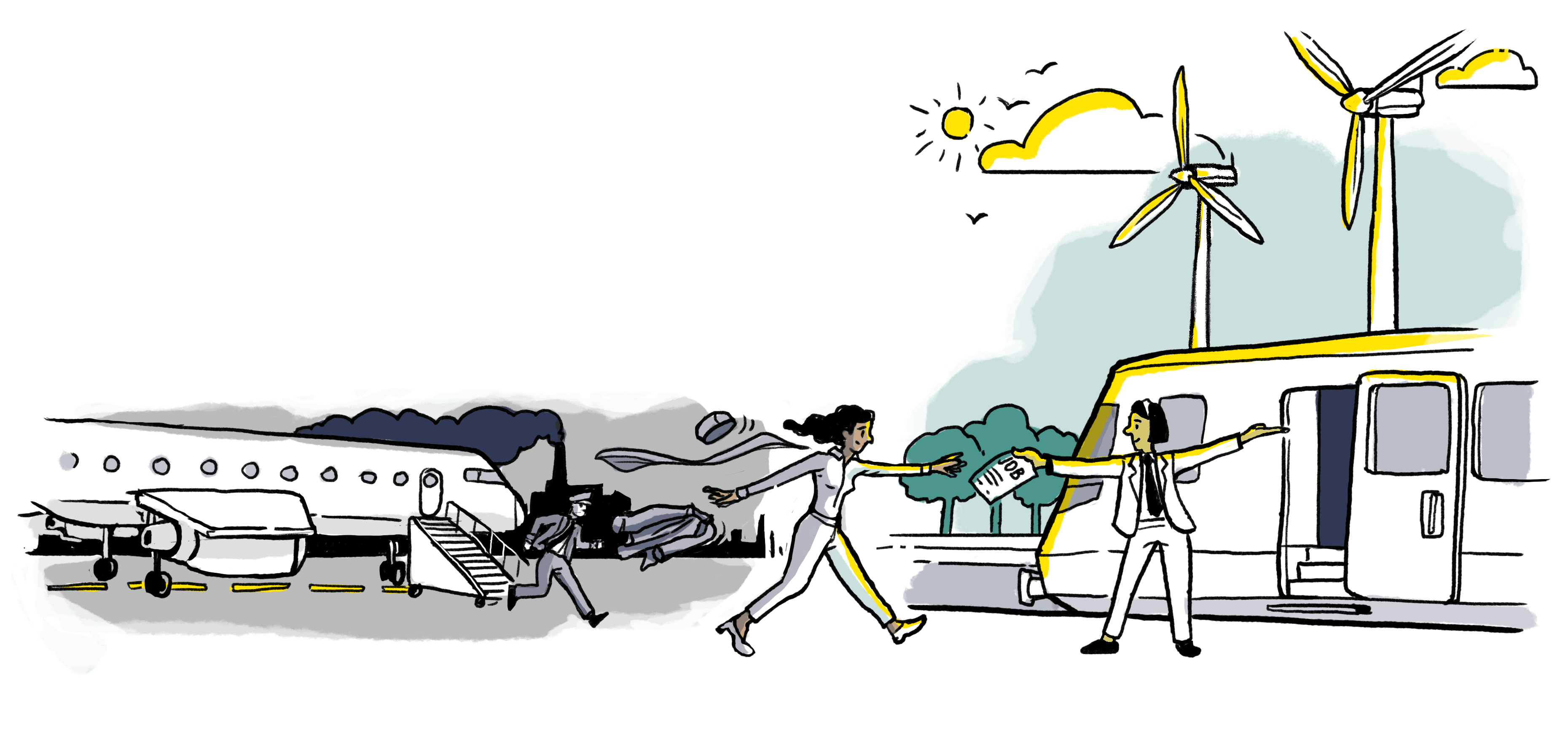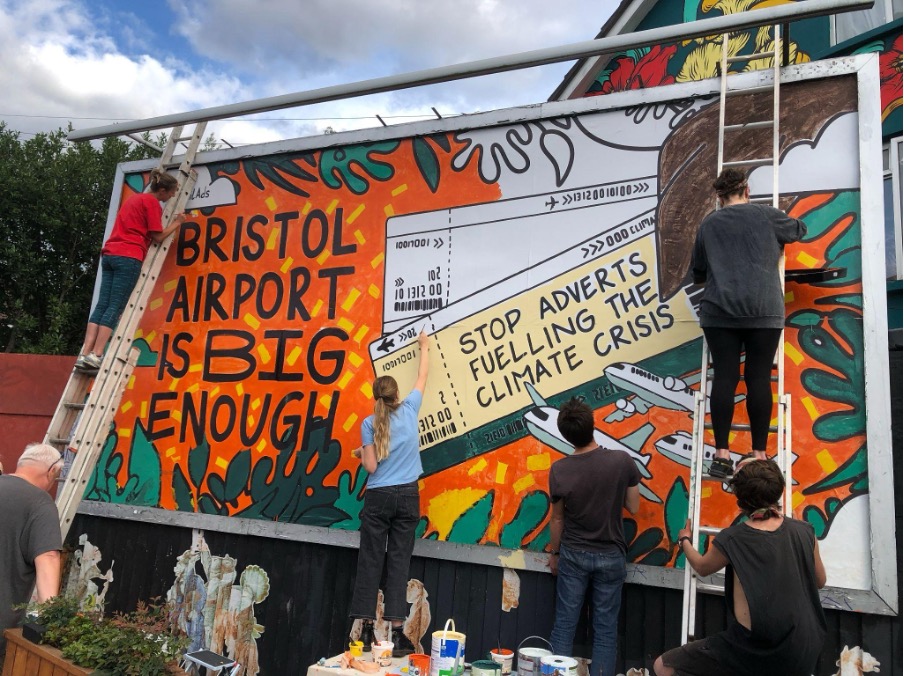Policies to Degrow Aviation

There are many possible policy measures that would degrow aviation. No single measure will tackle all the problems, so a package of different ones is needed. On this webpage, you can see the proposals of the Stay Grounded Network.
Frequent Flying Levy
A Frequent Flying Levy will target the wealthy frequent flyers, while not affecting 72% of the population.
It will also create six times more tax revenues from aviation, which are needed to fill the large finance gap for the green transition in Europe and in the Global South.
Ban Private Jets
Private jets and other luxury emissions are not currently regulated as such and largely excluded from key legislation that is supposed to tackle greenhouse gas emissions.
The scandal doesn’t stop at private jets: business flights, frequent flyer programmes, and other “bullshit flights” are also the problem. Only 1% of people are responsible for half of all emissions from flying.
Let’s put an end to excessive flights and:
- ban private jets
- ban air miles
- tax frequent flyers.


Caps and Limits of Airports
We will continously publish material on this type of measure here. We can learn a lot from the “case” of Schipol airport, which shows that capping flights for environmental reasons is already happening and possible. Read our article “Capping airports: An analysis of the Schiphol Airport campaign“.
Report “Degrowth of Aviation”
In July 2019, during the conference “Degrowth of Aviation” in Barcelona, more than 150 experts and civil society participants discussed different measures. The outcomes of the conference and further discussions led to the published report “Degrowth of Aviation”. It is aimed to spark more campaigns and policies to tackle aviation’s climate impact in a just way.


Ban Airline Advertising
Let’s end airline advertsing! Take a look at our subvertising toolkit as well as at our toolkit on how to file complaints to advertising regulatory institutions.
Ban Night Flights
airports. Night flights at airports must be stopped immediately.The damage to health and the climate is disproportionate to any alleged necessity of take-offs and landings at night.
From 2024, every year in autumn an “International Day for the Ban on Night Flights at Airports” will take place.


